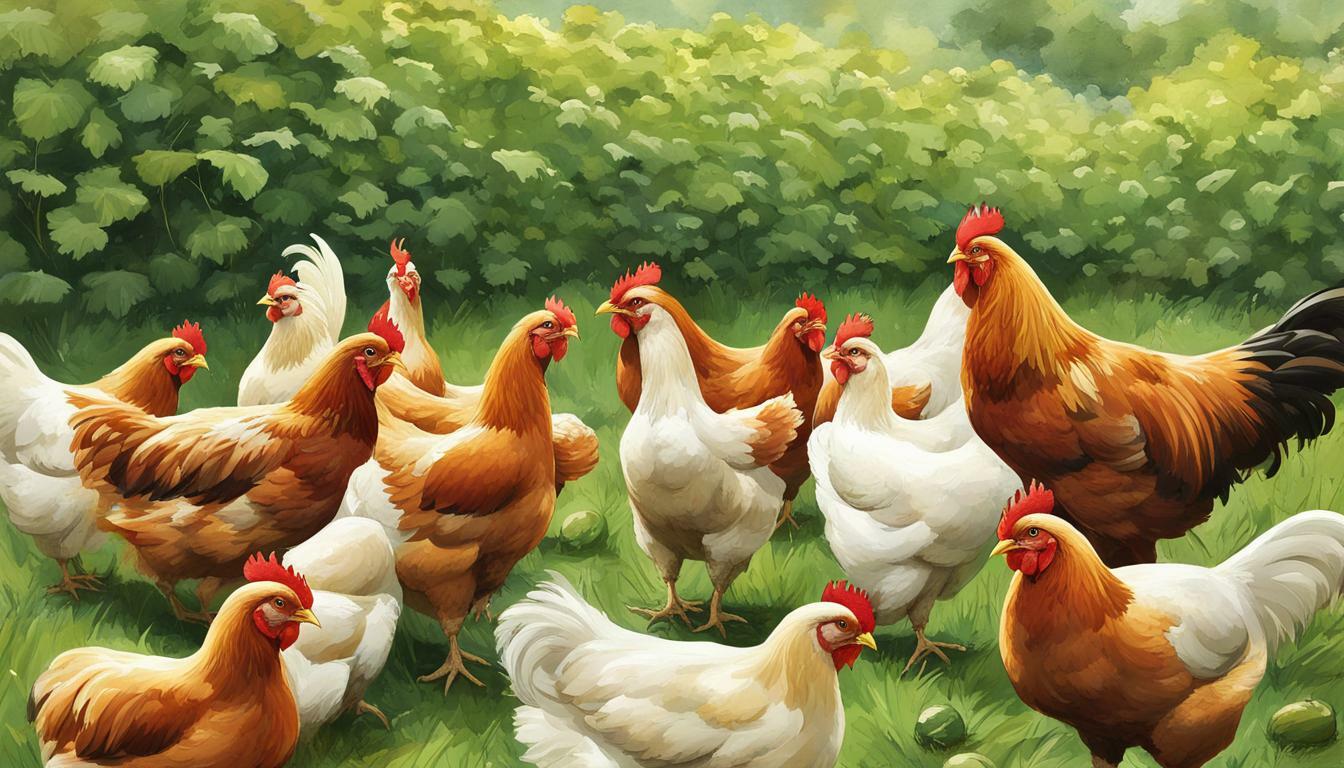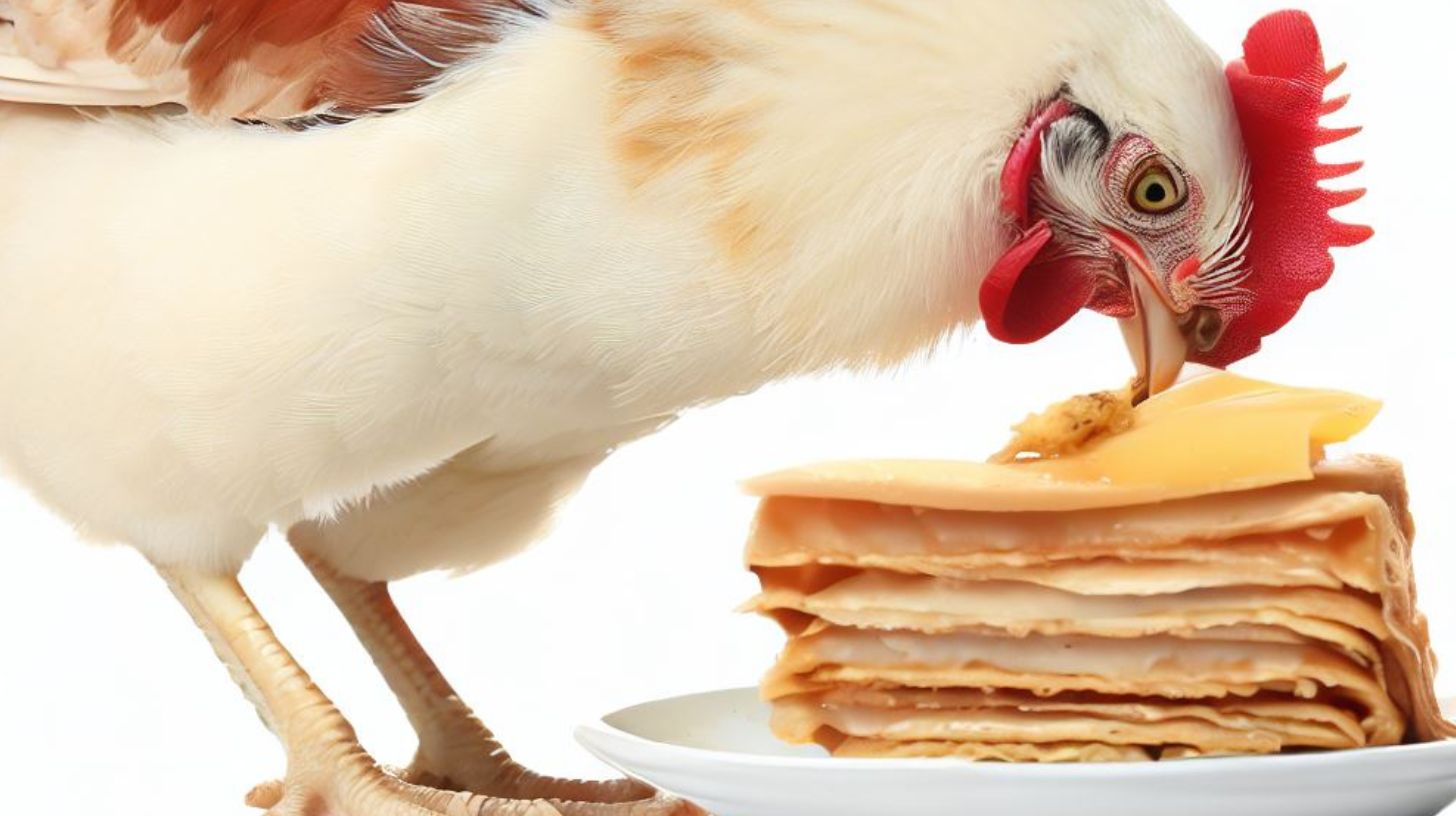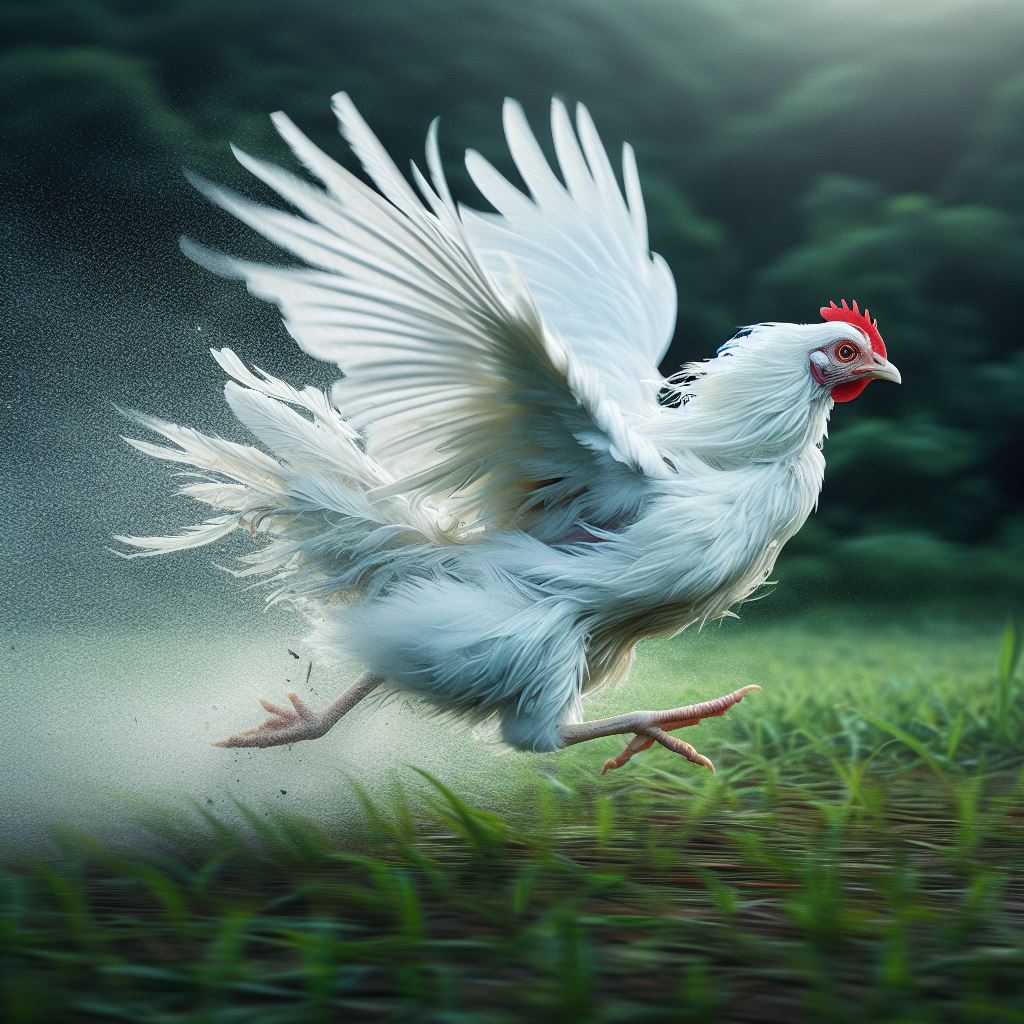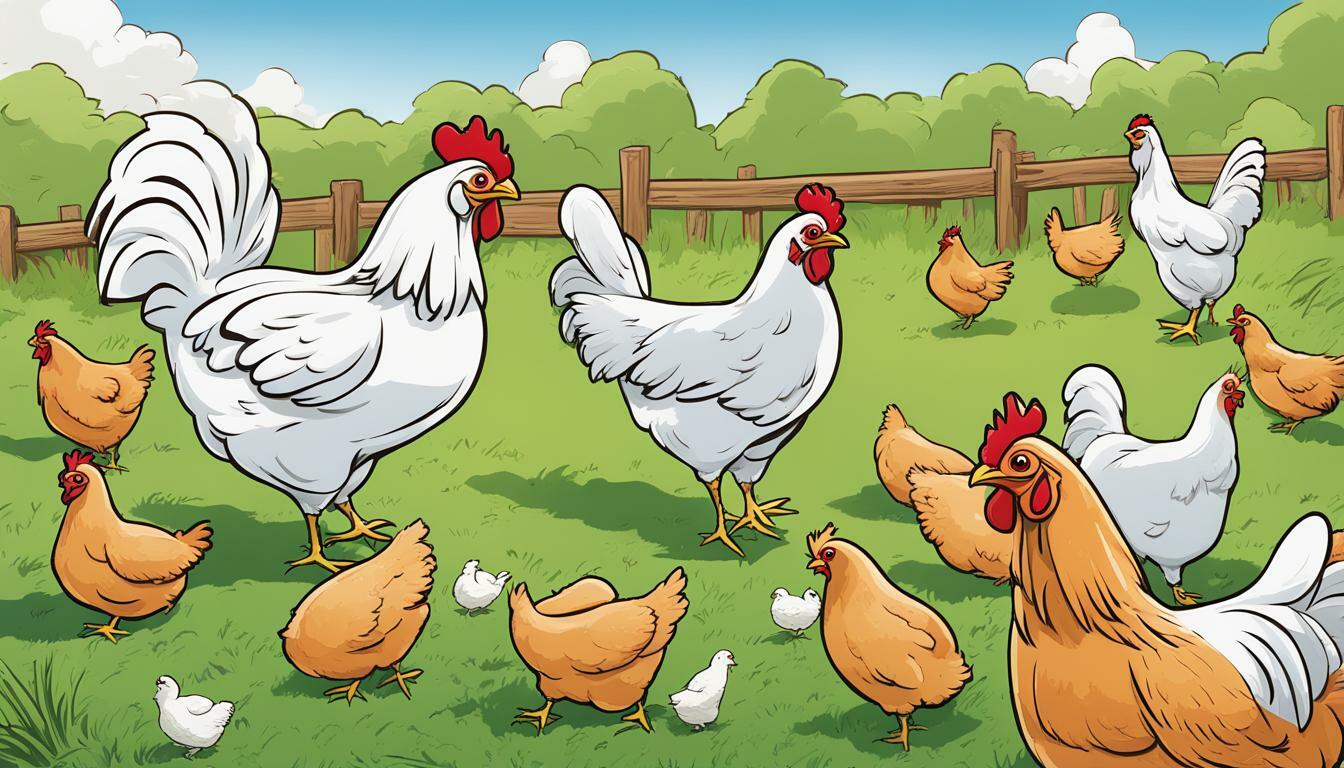Can Chickens Eat Water Chestnuts? Find Out Here!

Daftar isi:
- Are Water Chestnuts Safe for Chickens to Eat?
- Do Chickens Like the Taste of Water Chestnuts?
- What Nutritional Benefits Do Water Chestnuts Offer?
- How Should Water Chestnuts Be Prepared for Chickens?
- Can Chickens Eat Canned Water Chestnuts?
- How Much Water Chestnut Can Chickens Eat?
- Can Chickens Eat Raw Water Chestnuts?
- Should I Give My Backyard Chickens Water Chestnuts?
- Can I Feed My Chickens Water Chestnuts From My Garden?
- Is It Okay to Give Water Chestnuts to Baby Chicks?
- Final Thoughts
Water chestnuts are a unique vegetable that can add crunch and flavor to many dishes. As a popular ingredient in Asian cuisines, water chestnuts are gaining popularity worldwide.
Backyard chicken owners often wonder if water chestnuts are safe and healthy treats for their flock. With their crispy texture and mild taste, it’s understandable why chickens may enjoy pecking at these veggies.
Let’s explore the key questions around feeding water chestnuts to chickens:
Are Water Chestnuts Safe for Chickens to Eat?
The main safety concern is choking. Whole water chestnuts present a potential choking hazard as they are round, dense, and hard. To prevent this risk, water chestnuts should be chopped into smaller, bite-sized pieces before feeding to chickens.
When properly prepared, water chestnuts are generally considered safe for chicken consumption. They do not contain any known toxins or compounds poisonous to chickens. As with any new treat, introduce water chestnuts in small amounts and monitor your flock for any adverse reactions.
Do Chickens Like the Taste of Water Chestnuts?
The crunchy texture and mild, slightly sweet taste of water chestnuts appeal to many chickens. The rich fiber content also promotes healthy digestion.
Chickens endowed with a natural foraging instinct enjoy the challenge of pecking at these firm, round morsels. The activity provides mental stimulation.
Some chickens may initially be wary of this unfamiliar vegetable. But given time to sample it, most chickens will discover water chestnuts make a satisfying snack.
What Nutritional Benefits Do Water Chestnuts Offer?
Water chestnuts provide some valuable nutrients for chickens:
- Fiber – The crispy flesh contains a good amount of fiber to support gut health. Both soluble and insoluble fiber aid digestion.
- Potassium – Essential for nerve signaling, fluid balance, and muscle function in chickens.
- Antioxidants – Water chestnuts contain antioxidants like vitamin C and manganese to boost the immune system and overall health.
- Hydration – With their high water content, water chestnuts help keep chickens hydrated.
While not the most nutrient-dense vegetable, water chestnuts make a hydrating, low-calorie treat packed with crunchy texture chickens love.
How Should Water Chestnuts Be Prepared for Chickens?
The main prep step is removing the tough outer rind and chopping the water chestnut into smaller pieces. Whole, unpeeled water chestnuts pose a choking risk.
You can serve water chestnuts:
- Diced or sliced into quarters/eighths.
- Lightly boiled or steamed to soften.
- Mixed with yogurt or feed for added texture.
Avoid seasoned or flavored water chestnuts, which may contain excess salt or spices. Stick to plain, unseasoned chestnuts.
Can Chickens Eat Canned Water Chestnuts?
Canned water chestnuts are already peeled and pre-chopped, making them safer and easier to feed to chickens. The canning process also helps soften their dense, crunchy texture.
Opt for canned chestnuts packed in water without added salt or flavorings. Rinse and drain the chestnuts before feeding to remove excess sodium.
Canned chestnuts are more processed but offer a convenient alternative to fresh. Follow the same recommended serving sizes.
How Much Water Chestnut Can Chickens Eat?
Water chestnuts should be fed in moderation as an occasional treat. Around 2-3 small pieces per chicken is sufficient. Never offer a full serving of pure water chestnuts.
To add nutrition and fiber without overfeeding, mix a few chopped water chestnuts into their main feed.
Monitor to ensure chestnuts don’t exceed 10% of daily food intake. Too many can potentially cause dietary imbalance or upset digestion. Keep a variety in their diet.
Can Chickens Eat Raw Water Chestnuts?
It’s safest to avoid raw water chestnuts. Raw chestnuts are extremely tough and crunchy, posing a high choking risk if accidentally swallowed whole.
Cooking softens the flesh and makes the chestnuts easier to chew and digest. Lightly boil, steam, or roast chestnuts before feeding to chickens.
If feeding raw, chop or shred into very small pieces. But cooked water chestnuts are ideal for safety.
Should I Give My Backyard Chickens Water Chestnuts?
In moderation, water chestnuts make a nutritious, low-calorie treat offering dietary variety. Their appealing crunch satisfies chickens’ natural foraging instinct.
For backyard flocks, water chestnuts provide a hydrating, fiber-rich snack chickens relish. Their mild flavor and crisp texture adds interest to the usual grain diet.
Feed chopped, cooked water chestnuts as the occasional treat. Limit intake and monitor reactions. Overall, they are a safe way to supplement nutritional variety.
Can I Feed My Chickens Water Chestnuts From My Garden?
Backyard gardeners with water chestnuts may wonder if they can offer these homegrown veggies to chickens.
The answer is yes – with a few precautions. Thoroughly wash garden-fresh chestnuts and peel off the outer skin. Chop raw chestnuts into very small pieces to prevent choking.
For safety, it’s still best to cook homegrown chestnuts before feeding. Boil or steam until fork tender all the way through. Let them cool before serving diced pieces to your eager flock.
Is It Okay to Give Water Chestnuts to Baby Chicks?
Baby chicks under 12 weeks old have smaller, more sensitive digestive systems. Their immune systems are also still developing.
For the first several weeks, it’s safest to avoid offering water chestnuts or any crisp, hard vegetables. Stick to a formulated starter feed appropriate for chicks.
Once matured to adulthood around 18-20 weeks old, chickens can safely enjoy chopped, cooked water chestnuts as an occasional snack alongside their regular diet.
Final Thoughts
Can chickens eat water chestnuts? In moderation, the answer is yes! These hydrating, crunchy veggies offer dietary variety backyard chickens go crazy for.
Chop fresh water chestnuts into bite-size pieces and cook thoroughly before feeding to chickens. Limit intake to occasional treats. By preparing them properly and monitoring your flock’s reactions, water chestnuts make a fun, fiber-filled snack both you and your chickens can enjoy together.
Welcome. I’m Adreena Shanum, the proud owner of this website, and I am incredibly passionate about animals, especially poultry. I founded adreenapets.com as a labor of love, stemming from my desire to share my knowledge and experiences with poultry enthusiasts worldwide.




